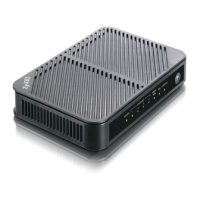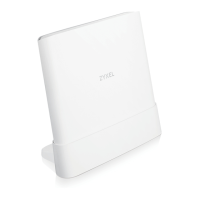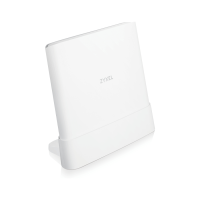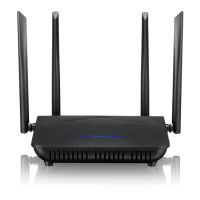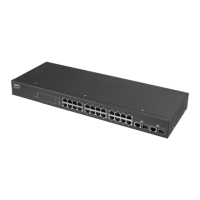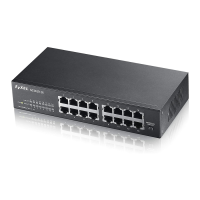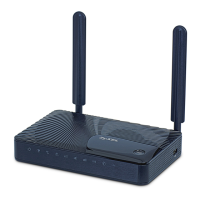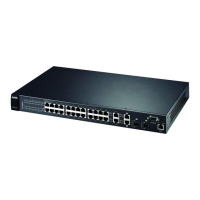AMG1202-T10B/AMG1302-T10B
Support Notes
8
All contents copyright © 2013 ZyXEL Communications Corporation.
7. What IP/Port mapping does Multi-NAT support?
Multi-NAT supports five types of IP/port mapping: One to One, Many to One,
Many to Many Overload, Many to Many No Overload and Server. The details
of the mapping between ILA and IGA are described as below. Here we define
the local IP addresses as the Internal Local Addresses (ILA) and the global IP
addresses as the Inside Global Address (IGA),
One to One: In One-to-One mode, the
AMG1202-T10B/AMG1302-T10B maps one ILA to one IGA.
Many to One: In Many-to-One mode, the
AMG1202-T10B/AMG1302-T10B maps multiple ILA to one IGA. This is
equivalent to SUA (i.e., PAT, port address translation), ZyXEL's Single
User Account feature (the SUA is optional in today's Prestige routers).
Many to Many Overload: In Many-to-Many Overload mode, the
AMG1202-T10B/AMG1302-T10B maps the multiple ILA to shared IGA.
Many One-to-One: In Many One-to-One mode, the
AMG1202-T10B/AMG1302-T10B maps each ILA to unique IGA.
Server: In Server mode, the AMG1202-T10B/AMG1302-T10B maps
multiple inside servers to one global IP address. This allows us to
specify multiple servers of different types behind the NAT for outside
access. Note; if you want to map each server to one unique IGA please
use the One-to-One mode.
The following table summarizes the five types.
8. How many network users can
the SUA/NAT support?
The Prestige does not limit the number
of the users but the number of the
sessions. The
AMG1202-T10B/AMG1302-T10B
supports 8192 sessions.
9. What are Device filters and
Protocol filters?
The filters have been separated into
two groups. One group is called
'device filter group', and the other is
called 'protocol filter group'. Generic
filters belong to the 'device filter group',
TCP/IP and IPX filters belong to the
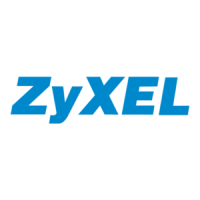
